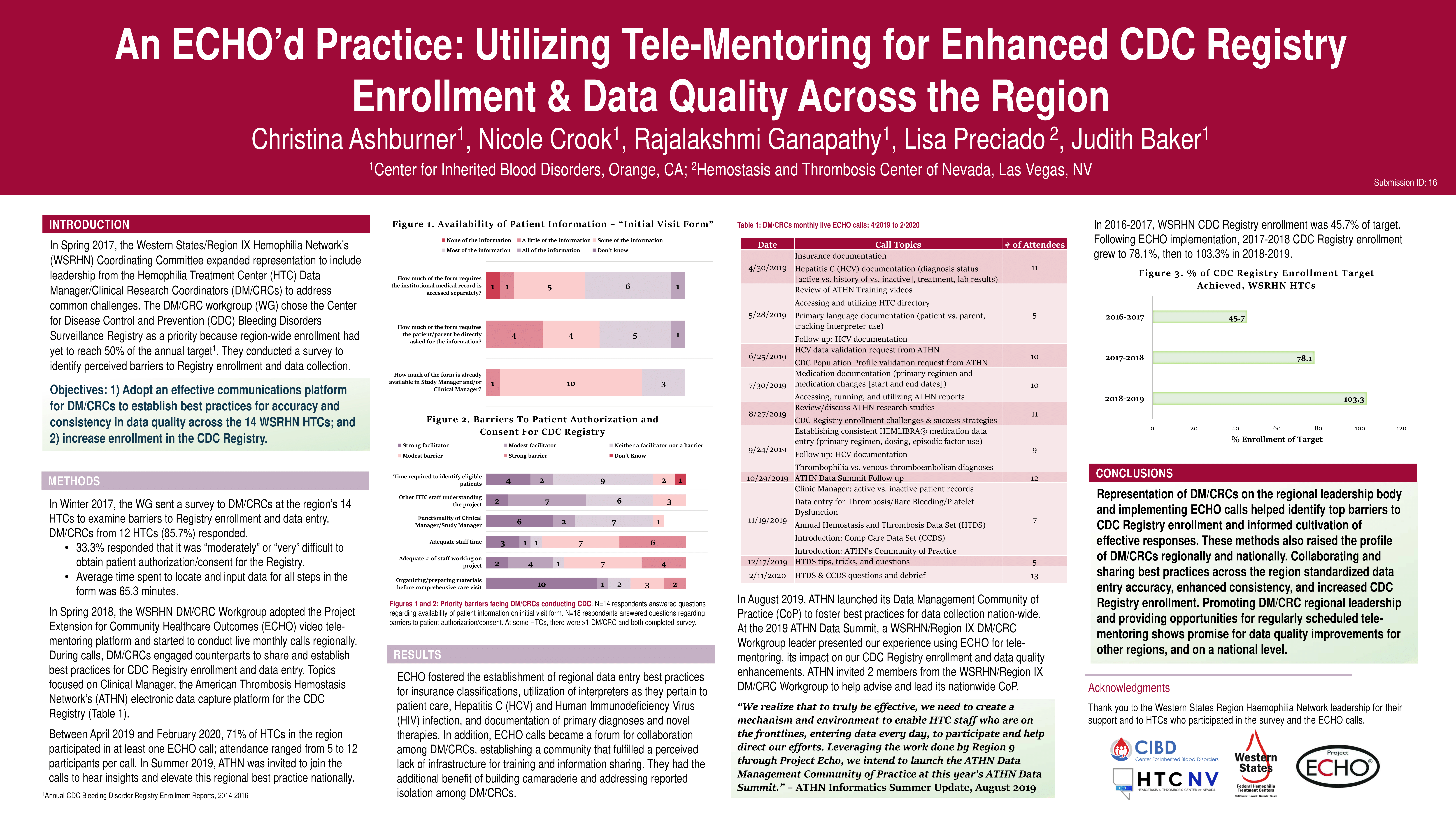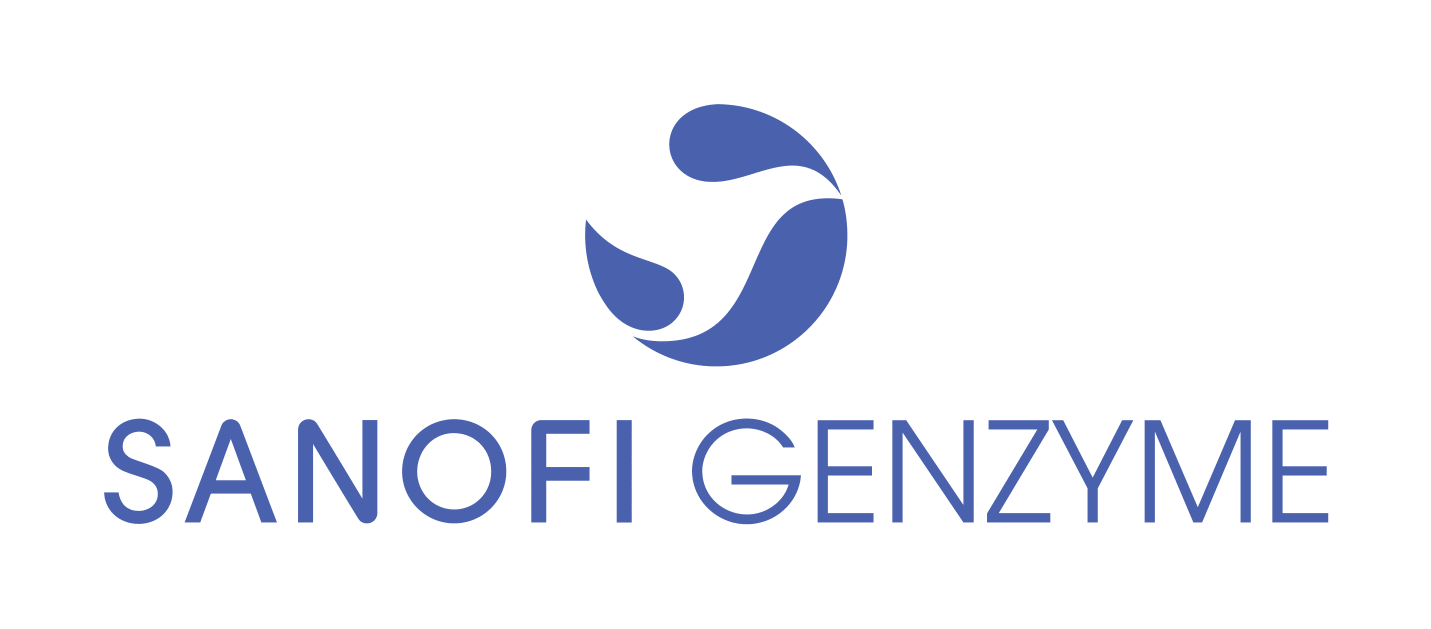National Hemophilia Foundation (NHF) - Posters
An ECHOd Practice: Utilizing Tele-Mentoring for Enhanced Data Quality Across One Hemophilia Treatment Center Region |
|
|
|

|
An ECHOd Practice: Utilizing Tele-Mentoring for Enhanced Data Quality Across One Hemophilia Treatment Center Region
Background:
In Spring 2017, the Western States/Region IX Hemophilia Treatment Center Network (WSRHN) Coordinating Committee expanded representation to Data Manager/Clinical Research Coordinators (DM/CRC) to address twocommon challenges. The DM/CRC chose the Center for Disease Control and Prevention (CDC) Bleeding Disorder Surveillance Registry as a priority. They conducted a region-wide survey to identify perceived barriers to Registry enrollment and data entry.
Objective:
Implement an effective communications platform for DM/CRCs to identify and share best practices in data entry quality, and CDC Bleeding Disorder Registry enrollment.
Methods:
In Spring 2018, the DM/CRC Workgroup adopted the Project Extension for Community Healthcare Outcomes (ECHO) video tele-mentoring platform for real-time monthly calls across the region. During near monthly calls, DM/CRAs engaged counterparts to establish and disseminate best practices for CDC Registry data entry. Topics, informed by results from the region-wide survey, focused on Clinical Manager, the American Thrombosis Hemostasis Networks (ATHN) electronic data capture platform for the CDC Registry. 77% of HTCs in the region joined ECHO calls. Attendance ranged from 5 to 12 participants per call. In Summer 2019, ATHN joined the calls, invited by the Regional Coordinator, to share this regional best practice.
Summary:
In 2016-2017 our regions CDC Registry enrollment was 45.7% of target. Following ECHO implementation, 2017-2018 CDC Registry enrollment grew to 78.1%, then to 103.3% in 2018-2019, the highest ever. ECHO fostered the establishment of regional data entry best practices for insurance classifications, viral infection, primary diagnoses, and novel therapies. In August 2019, ATHN launched its Data Management Community of Practice (CoP) to facilitate best practices for data collection nation-wide. At the 2019 ATHN Data Summit, a WSRHN/Region IX DM/CRC Workgroup leader presented our experience instituting ECHO for tele-mentoring, and its impact on our CDC Registry enrollment and data quality enhancements. ATHN invited two members from the WSRHN/Region IX DM/CRC Workgroup to help advise and lead its nationwide CoP.
Conclusion:
Representation of DM/CRCs on the regional leadership body, and implementing ECHO calls, raised the profile of DM/CRCs regionally and nationally. Regular ECHO calls increased CDC Bleeding Disorder Registry enrollment, standardized data entry accuracy and consistency region-wide, and shows promise for data quality improvements nationally.
CA: cashburner@c3dibd.org
NC: ncrook@c3dibd.org
RG: rganapathy@c3dibd.org
LP: lisa.preciado@htcnv.org
JB: jbaker@c3dibd.org



